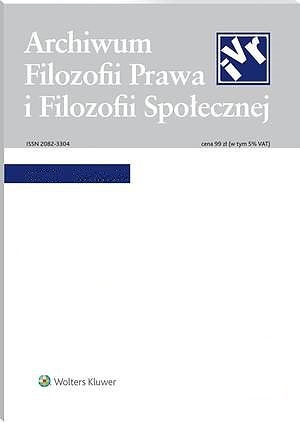Pojęcie dowodu jako otwarta rana prawa: niezmiennie błędna aporia?
Evidence (or proof?) as law’s gaping wound: a persistent false aporia?
Author(s): José Manuel Aroso LinharesContributor(s): Bartosz Wojciechowski (Translator)
Subject(s): Law, Constitution, Jurisprudence, Philosophy of Law, Philosophy of Law
Published by: Stowarzyszenie Filozofii Prawa i Filozofii Społecznej – Sekcja Polska IVR
Keywords: law of evidence; Piyel Haldar; judicial reasoning; realisation of Law
Summary/Abstract: In the paper I would like to allude to the possibilities that at last seem recognisable (and can be explored) when, expressly refuting the scission postulate (either in its luminous positive version or in its deconstructive aporetic reproduction), an internally relevant thesis for methodological unity between evidentiary adjudication and adjudication tout court (between judicial reasoning with proof and adjudicative reasoning as the realisation of Law) is advocated – with the certainty that the defence of this claim does not deny (or dilute) the specificity of the evidence problem, but instead provides this specificity with new opportunities for being understood and experienced in direct connection with the (increasing!) need to identify law’s specific project and its autonomous practical world as an unmistakable cultural acquisition. To condense the argument, I would say that methodological unity has to do with the priority of controversy – as a specific practical structure demanding judgment and the constitutive entrance of the comparing Third – whereas the specificity of evidential judgment corresponds to the irradiance of the referential claim and the narrative intelligibility that identifies it.
Journal: Archiwum Filozofii Prawa i Filozofii Społecznej
- Issue Year: 6/2013
- Issue No: 1
- Page Range: 5-20
- Page Count: 16
- Language: Polish

